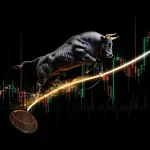
Uncovering the Truth: Market Experts Know Nothing
July 2, 2024
Introduction
In the complex world of financial markets, the term “expert” is often bandied about with reckless abandon. Many individuals claim expertise, leading others to believe they possess a level of knowledge that, in reality, may be nothing more than a fleeting burst of information – an “ex-spurt,” if you will. This essay delves into the nature of true market expertise, exploring the pitfalls of blind faith in so-called experts and the importance of balancing self-interest with collective benefit. Through the lens of mass psychology, contrarian thinking, technical analysis, and cognitive biases, we’ll uncover why many market experts may be more clueless than they appear.
The Illusion of Expertise
From the dawn of civilization, humans have sought guidance from those perceived as wiser or more knowledgeable. As far back as 2000 BC, the ancient Babylonians consulted astrologers and diviners to predict market conditions and harvest yields. While their methods may seem primitive to us now, the human tendency to seek expert opinion has remained constant throughout history.
However, the modern financial landscape is far more complex than ancient markets. As the 17th-century philosopher Francis Bacon astutely observed, “Knowledge is power.” But in today’s information age, the sheer volume of data available can create an illusion of knowledge that masks proper understanding.
Mass Psychology and Market Behavior
To understand why market experts often fall short, we must first examine the role of mass psychology in financial markets. The 16th-century philosopher Charles Mackay, in his seminal work “Extraordinary Popular Delusions and the Madness of Crowds,” highlighted how group behaviour could lead to irrational market movements. He wrote, “Men, it has been well said, think in herds; it will be seen that they go mad in herds, while they only recover their senses slowly, one by one.”
This herd mentality often leads to cognitive biases that cloud judgment. The bandwagon effect, for instance, causes individuals to follow the crowd, even when evidence suggests otherwise. Similarly, confirmation bias leads people to seek information confirming their beliefs, ignoring contradictory evidence.
These psychological factors create a challenging environment for market analysis. Even seasoned experts can fall prey to these biases, leading to flawed predictions and advice.
The Fallacy of Expert Predictions
Historical data consistently shows that expert predictions in financial markets are often no more accurate than chance. A study by CXO Advisory Group tracked 6,582 predictions made by 68 market experts over 12 years. The results were sobering: the average accuracy rate was just 47%, barely better than a coin flip.
This poor track record can be attributed to several factors:
1. Overconfidence Bias: Experts often overestimate their ability to predict market movements.
2. Hindsight Bias: The tendency to believe, after an event, that one would have predicted or expected it beforehand.
3. Narrative Fallacy: The human tendency to create stories to explain complex events, often oversimplifying cause and effect.
As the 16th-century philosopher Michel de Montaigne wisely noted, “Nothing is so firmly believed as what we least know.”
The Limitations of Technical Analysis
Many market experts rely heavily on technical analysis, studying charts and patterns to predict future price movements. While this approach has its merits, it also has significant limitations.
The 17th-century mathematician Blaise Pascal cautioned against over-reliance on patterns, stating, “The heart has its reasons, which reason does not know.” In financial markets, this suggests that human emotions and irrational behaviour can often override logical analysis.
Moreover, Eugene Fama’s efficient market hypothesis, proposed in the 1960s, argues that all available information is already reflected in asset prices. If this theory holds, technical analysis becomes largely futile, as future price movements would be unpredictable based on past data.
The Value of Contrarian Thinking
Given the limitations of traditional expert analysis, contrarian thinking offers a valuable alternative perspective. The 16th-century philosopher Nicolaus Copernicus, who proposed the heliocentric model of the solar system against prevailing wisdom, embodied the spirit of contrarian thinking. He wrote, “To know that we know what we know, and to know that we do not know what we do not know, that is true knowledge.”
In financial markets, contrarian investors often profit by going against the crowd. As the 18th-century banker Baron Rothschild famously said, “The time to buy is when there’s blood in the streets.” This approach requires a deep understanding of market psychology and the courage to act against prevailing sentiment.
The Paradox of Self-Interest and Collective Benefit
While working for the benefit of the group is often seen as virtuous, blindly doing so can lead to suboptimal outcomes. The 17th-century philosopher Thomas Hobbes argued in “Leviathan” that self-interest is a fundamental aspect of human nature. He wrote, “The condition of man… is a condition of war of everyone against everyone.”
However, this doesn’t mean self-interest and collective benefit are mutually exclusive. The 18th-century economist Adam Smith introduced the concept of the “invisible hand,” suggesting that individuals pursuing their self-interest can inadvertently benefit society.
In financial markets, this implies that investors should prioritize their financial health before attempting to benefit others. As the ancient Chinese philosopher Confucius wisely stated, “To put the world in order, we must first put the nation in order; to put the nation in order, we must first put the family in order; to put the family in order, we must first cultivate our personal life.”
The Virtue of Balanced Selfishness
The concept of “selfish altruism” suggests that by taking care of our needs first, we become better equipped to help others. This idea is not new; the ancient Greek philosopher Aristotle argued for the golden mean, a balance between extremes.
In “The Virtue of Selfishness,” 20th-century philosopher Ayn Rand expanded on this idea, arguing that rational self-interest is acceptable and essential for human flourishing. She wrote, “The purpose of morality is to teach you not to suffer and die, but to enjoy yourself and live.”
Applied to financial markets, this principle suggests that investors should develop their expertise and financial security before attempting to guide others. By doing so, they can share knowledge and resources more effectively, benefiting themselves and the broader market.
Conclusion: The Path to True Market Expertise
In light of the evidence presented, it’s clear that many self-proclaimed market experts may indeed be clueless, relying on flawed analysis, cognitive biases, and misguided notions of altruism. True market expertise requires a lifelong commitment to learning, a willingness to challenge prevailing wisdom, and a balanced approach to self-interest and collective benefit.
As investors and market participants, we must be wary of blindly following expert advice. Instead, we should cultivate our understanding of market dynamics, embracing success and failure as learning opportunities. By prioritising our economic health and knowledge, we can contribute more effectively to the broader financial ecosystem.
The 16th-century essayist Michel de Montaigne perhaps said it best: “I prefer the company of peasants because they have not been educated sufficiently to reason incorrectly.” In financial markets, sometimes the most valuable insights come not from self-proclaimed experts but from those who approach the market with humility, curiosity, and a willingness to learn from success and failure.
In conclusion, while the quest for market expertise is noble, we must recognize the limitations of human knowledge and the complexities of financial systems. By embracing a balanced approach to self-interest and collective benefit, continually questioning our assumptions, and remaining open to new ideas, we can navigate the turbulent waters of financial markets more effectively than blindly following the advice of so-called experts.
Other articles of interest












